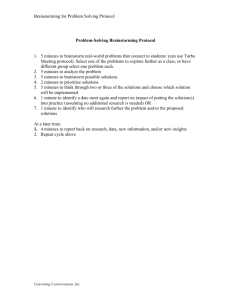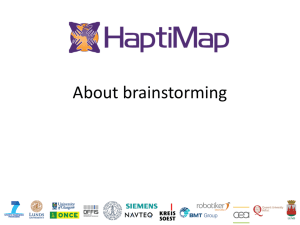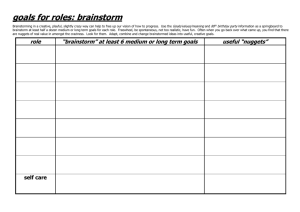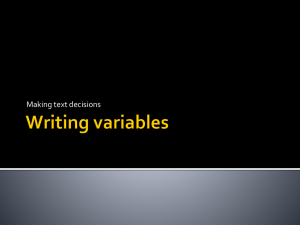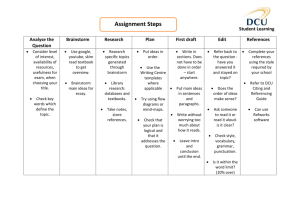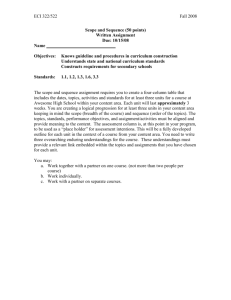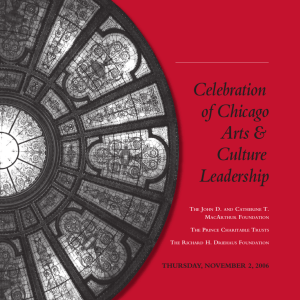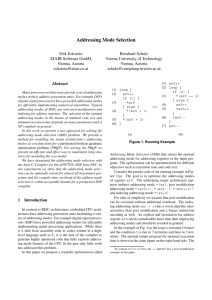Brainstorming Assessment Questions Tool
advertisement
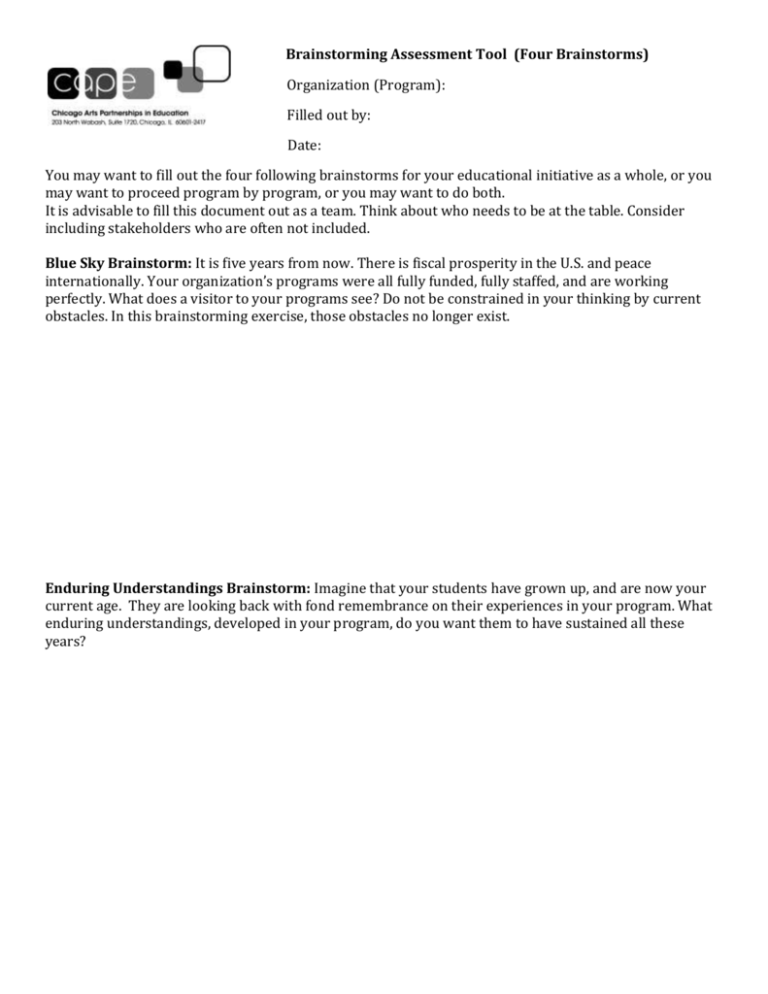
Brainstorming Assessment Tool (Four Brainstorms) Organization (Program): Filled out by: Date: You may want to fill out the four following brainstorms for your educational initiative as a whole, or you may want to proceed program by program, or you may want to do both. It is advisable to fill this document out as a team. Think about who needs to be at the table. Consider including stakeholders who are often not included. Blue Sky Brainstorm: It is five years from now. There is fiscal prosperity in the U.S. and peace internationally. Your organization’s programs were all fully funded, fully staffed, and are working perfectly. What does a visitor to your programs see? Do not be constrained in your thinking by current obstacles. In this brainstorming exercise, those obstacles no longer exist. Enduring Understandings Brainstorm: Imagine that your students have grown up, and are now your current age. They are looking back with fond remembrance on their experiences in your program. What enduring understandings, developed in your program, do you want them to have sustained all these years? Curiosity Brainstorm: What do you actually wonder about in your program? It is important that these wonderings be questions to which you DON’T have the answers yet, making the need for assessment real. Less of “How many students liked my wonderful theater workshop giving young people voice?” (let’s assume they all did), and more of “What different theater skills do different students need to experience their own power?” If we want to model learning, we need to learn from our assessments. Chicago Guide for Teaching and Learning in the Arts: http://chicagoguide.cpsarts.org/ What grades does your program serve? Look up the standards for those grades in your arts discipline(s) in the Chicago Guide for Teaching and Learning in the Arts. What standards is your program expert at addressing? What standards could you be addressing that you are not addressing? If your students have not had regular arts instruction, you may want to reference arts standards from earlier years. Note that the Guide includes standards from four areas: Artmaking, Arts Literacy, Interpretation and Evaluation, and Making Connections. Assessment Tool © 2011 Chicago Arts Partnerships in Education (CAPE)
